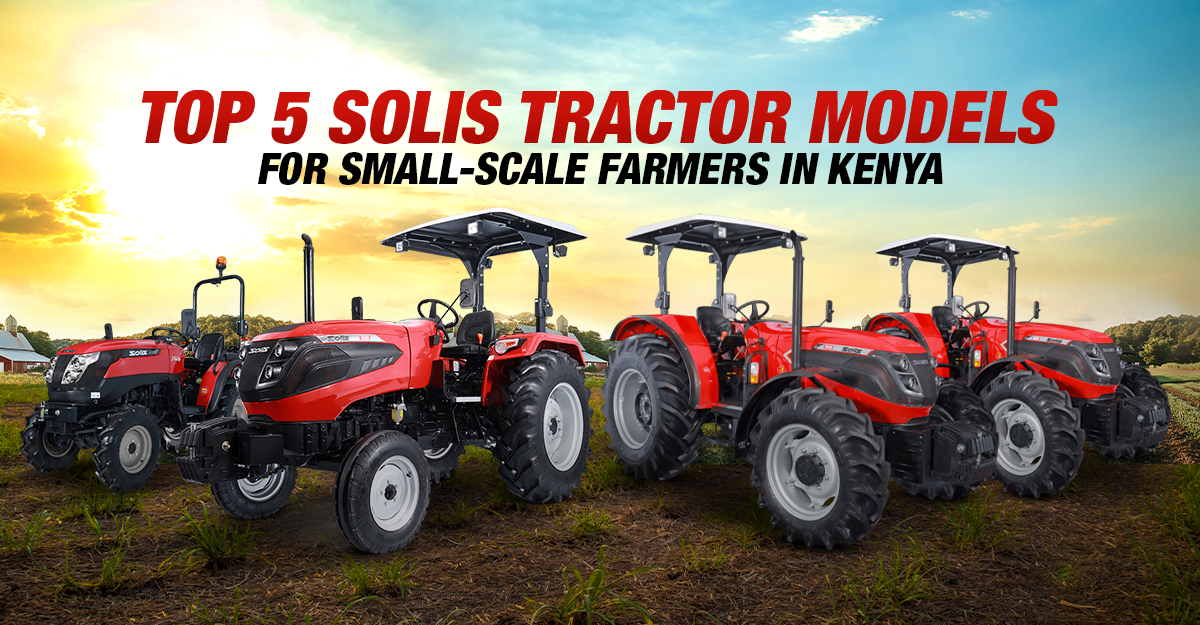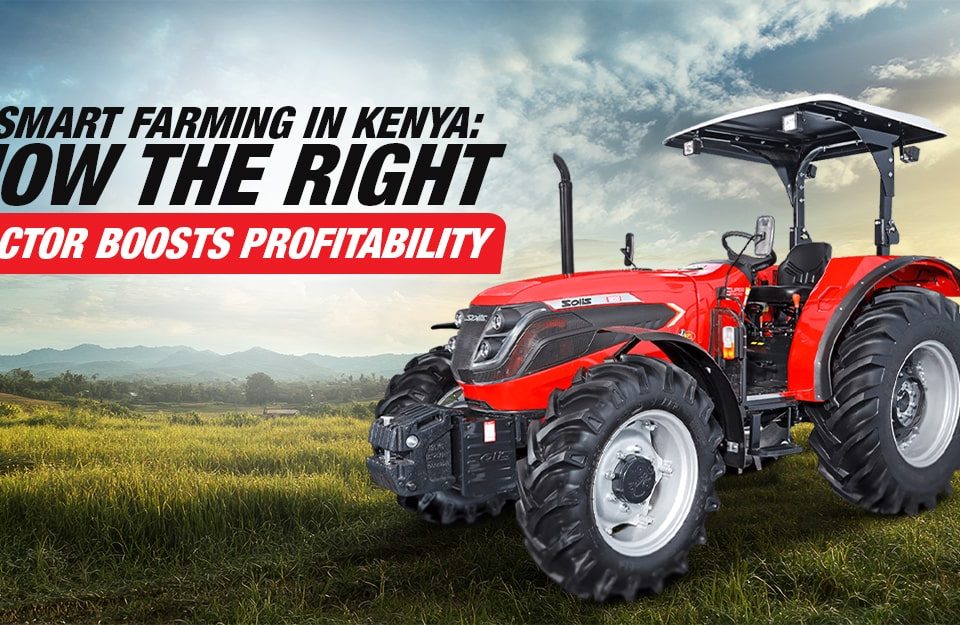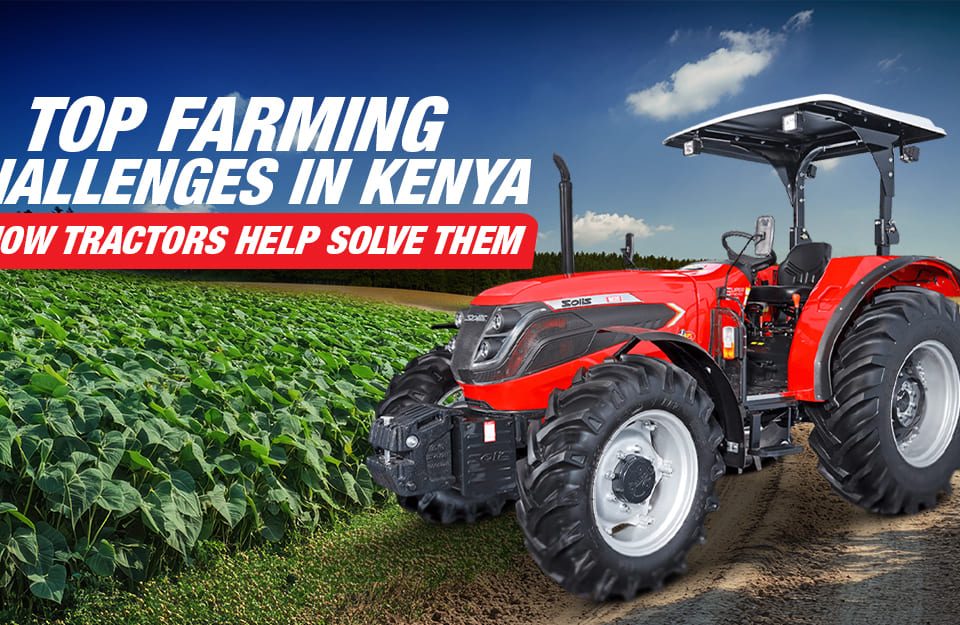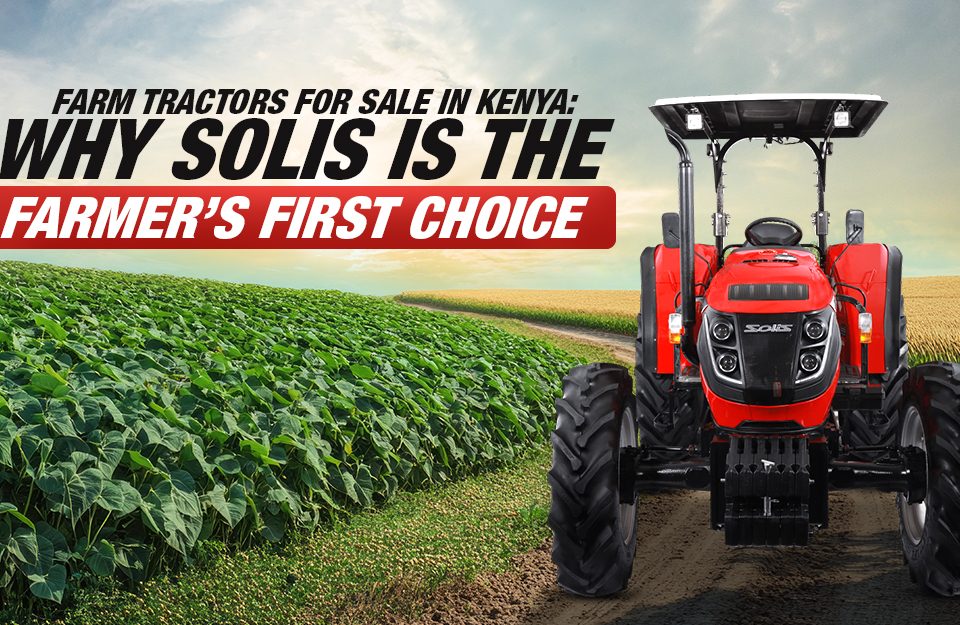Top 5 Solis Tractor Models for Small-Scale Farmers in Kenya

Solis Small Tractors: Ideal for Kenya’s Diverse Farming Needs
May 23, 2025
How Solis Tractors Support Modern Farming in Kenya
June 28, 2025The economy of Kenya is mainly dependent on farming, and these small-scale farmers are the backbone of the economy. They are important in the development of the country, and through their production, they supply food to the local communities. By achieving this aspect, they drive rural employment. Nevertheless, low productivity, which can be attributed to the use of a manual workforce or obsolete equipment, is one of the constant problems that they have to contend with. These are the five best Solis tractor models that are suitable for small-scale farmers in Kenya.
Tractor Models Available in Kenya
- Solis 18V –
Solis 18V is an excellent starter kit for subsistence farmers who operate small terraces or land owners who operate small farms. Its low-grade power makes it perfect for executing light tasks such as ploughing kitchen gardens, planting small plots and carrying produce to the market. Small and agile, it goes along narrow tracks and through small spaces despite being capable of using simple tools such as rotavators or sprayers.
- Solis S2620-
Probably the most common type of small- to medium-sized farm in Kenya is the Solis S2620, suitable for row crops, intercropping and general light farm work and can do heavier tillage hauling of trailers. It can also be used more often. It has a shuttle gearbox, which makes it quick and easy to change direction. It has good performance, fuel savings abilities, and value to the farmers.
- Solis S5520-
Solis S5520 adds considerably more pulling power and strength to big tools, such as big ploughs or trailers. In addition to power, they give synchromesh transmission to improve the shift of gears, good brakes, and the capacity to operate larger implements, all ideal for scaling the operation and reducing the passes the tractor has to make.
- Solis S7520-
Solis S7520 is equipped with Japanese-inspired transmission and super-powerful brakes. Its model is more or less energy-conserving on long working days and has a comfortable working capability with heavy implements-bossing big rotavators, harrows, and trailer loads without any problems. It is a good investment for farmers who look out for stability and durability.
- Solis S9220-
This tractor overcomes harsh terrains, hills, and wetlands and also performs on heavy-duty farming equipment such as seeders, planters, and dump trailers. It also has a power steering and locking differential that allows it to negotiate slowly and safely on ridges and upmost slopes, which is ideal for Mount Kenya or Western highlands. The Solis 90 proves that even small-size farmers can afford to own bigger-iron equipment without having to go bankrupt.
Why Solis is the Right Choice for Kenyan Farmers:-
Solis tractors have gained Kenyan farmers’ confidence because of some mutual benefits within the range. To begin with, they are very economical in their fuel consumption, and this is crucial to operations management for smallholders. Secondly, they are made to be easy to use, and they have minimal training requirements, an essential factor to be considered by farmers who are not very accustomed to the use of machines. Also, Solis tractors have robust bodies, powerful engines, and effective hydraulics by which they can provide long-running services, even in rough jobs. They are versatile because they can be used with various farm implements, which makes a farmer use a single machine in different farming activities.
Availability of Spare Parts and Service Support:-
The availability of spares and services is always one of the big questions of any farmer who invests in equipment. Solis has also been strategic in making sure that the local dealerships and service networks make up-to-date maintenance and original spare parts available to the farmers in Kenya. This minimizes idle time in peak farming seasons and guarantees that machinery does not go idle during off-seasons. The presence of dependable after-sales services also lengthens the lifespan of the tractors and enables the farmers to believe in making an investment.
Conclusion:-
The size of the tractor Solis provides is well-balanced and serves the various needs of the small farms well. With the continued trend of mechanization in the future of the Kenyan agricultural sector, Solis tractors have been emerging as reliable partners in transforming small farms to be efficient, more profitable, and sustainable. Hand in hand, Kenya’s small-scale farmers are more empowered than before to continue feeding the country and increasing their wealth.




